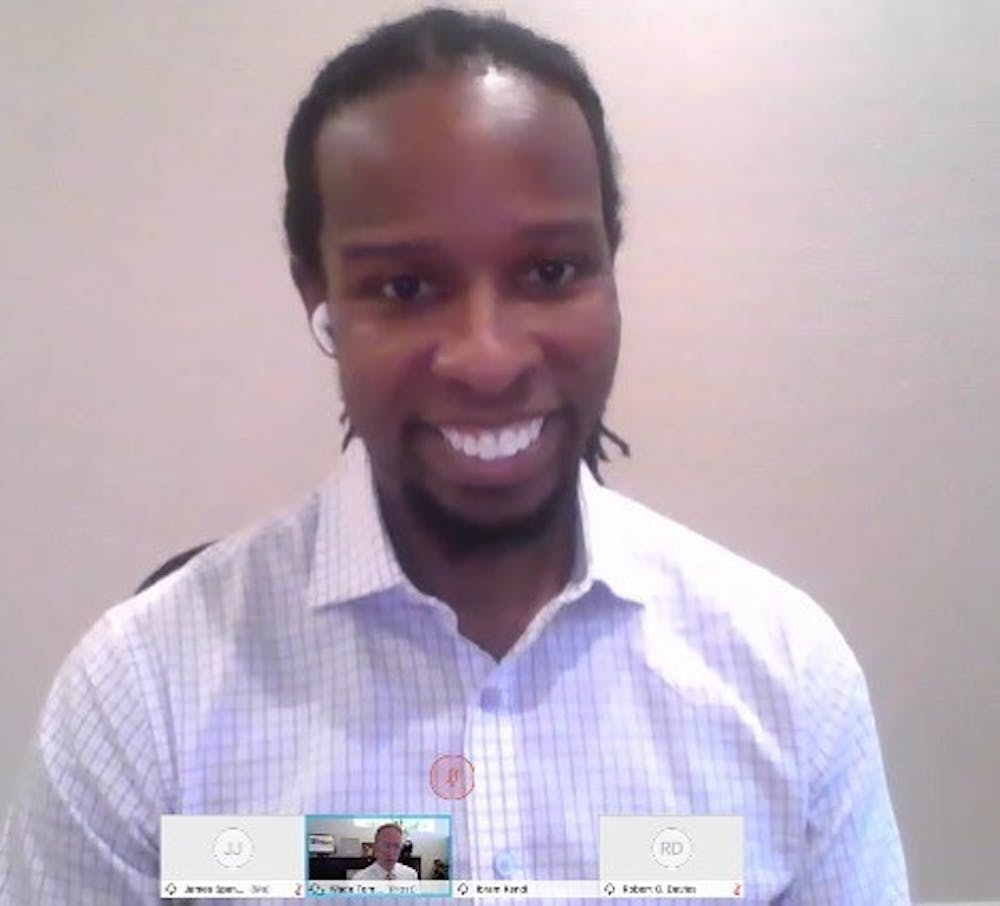Award-winning author Ibram X. Kendi teaches students how to be antiracist
Ibram X. Kendi, the award-winning author of New York Times bestseller "How To Be An Antiracist," virtually discussed the difference between being not racist and antiracist Sept. 2.
The Boston University professor spoke to more than 350 Central Michigan University students via Webex. The event was hosted by the Multicultural Academic Student Services.
Kendi said “How to be an Antiracist” was extremely difficult for him to write for multiple reasons, including vulnerability and attempting to be chronological throughout the narrative journey all Americans face where Black people are seen to be the problem. Kendi explained that many people do not realize they have been raised to think that.
“I came to see the real problem was racist power and policy,” he said.
Kendi defined the difference between a non-racist and anti-racist. According to Kendi's definition, nonracist comes from the phrase “I am not racist,” which people typically say when they have done something racist to be in racist denial. By Kendi's definition, an antiracist is in contrast to nonracist, which is to admit where one is being racist.
“Antiracist policies lead to equity and justice,” Kendi said.
Although he has seen a growing awareness of racism, Kendi is wondering whether people are going to be willing to support the big solutions to this problem.
Kendi believes behavioral racism is a big issue within certain racial groups having one person represent the entire racial group. Although there is a contradiction when it comes to a white person, Kendi emphasizes all that is being asked is the same proper treatment.
He mentioned how there has never been an antiracist curriculum in the United States that systemically teaches about all cultures equally and that racial groups are equal.
Throughout his conversation, Kendi mentioned that making students feel supported is as simple as allowing your students to be themselves culturally, aesthetically and linguistically to not discourage them from being themselves. He emphasized antiracist rhetoric is easy for colleges and there are better ways universities can move forward to be a part of the solution.
"Racism is curable based on history and philosophy and believing the impossible can happen,” Kendi said.




